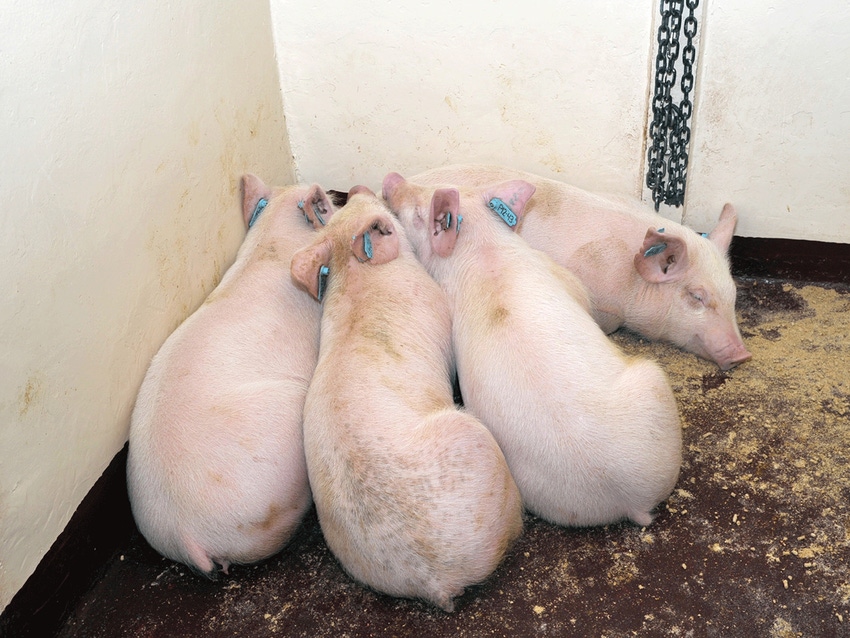
By Ainslie Chandler and Agnieszka de Sousa
Government and academic experts in the U.S. have developed a vaccine against African swine fever that’s proved 100% effective, according to the American Society for Microbiology.
Both high and low doses of the vaccine, developed from a genetically modified prior strain of the virus, were effective in pigs when they were challenged 28 days after innoculation, the report said.
“This new experimental ASFV vaccine shows promise, and offers complete protection against the current strain currently producing outbreaks throughout Eastern Europe and Asia,” said Douglas Gladue, the principal investigator at the U.S. Department of Agriculture, which developed the vaccine.
The virus has been most devastating for China, the world’s biggest producer of pork which first reported a case about 1 1/2 years ago. Since then hog herds have been decimated, with its impact ricocheting across global agricultural markets. Scientists from China to the U.S. have been racing to develop a vaccine for the virus, which is deadly to pigs but isn’t known to harm humans.
There is no commercially available vaccine against the disease, which was first discovered more than 100 years ago in Africa. In its most virulent form, the virus can be 100% lethal. It infects pigs and wild boars, and outbreaks have been found in eastern Europe, Russia, and across Asia including Vietnam and South Korea.
“African Swine Fever is probably the greatest current epidemic threat to global food security,” said Professor James Wood, head of the department of veterinary medicine at the University of Cambridge. “If complete protection from a safe product that cannot revert to virulence has been demonstrated and will be published in an international scientific journal, then this would be a most exciting advance of global significance.”
Despite 50 years of research, scientists haven’t managed to develop a vaccine that’s safe and effective against African swine fever. In China, reports of unauthorized and experimental vaccines surfaced last year, raising fears that its use could compound the problem.
Research into the vaccine started after a 2007 outbreak of the virus in the Republic of Georgia, the USDA’s Gladue said. More work needs to be done to meet regulatory requirements ahead of commercialization, he said.
“It’s a huge, huge milestone,” said Professor Eric Fevre, chair of veterinary infectious diseases at the University of Liverpool. “If this candidate vaccine can be shown to work in clinical trials and in the field, be shown to be safe and be able to get over regulatory approval in the countries where it needs to be used, it could have major benefits for pig production and disease control.”
To contact the reporters on this story:
Ainslie Chandler in Sydney at [email protected];
Agnieszka de Sousa in London at [email protected]
To contact the editors responsible for this story:
Anna Kitanaka at [email protected]
Liezel Hill
© 2020 Bloomberg L.P.
About the Author(s)
You May Also Like




